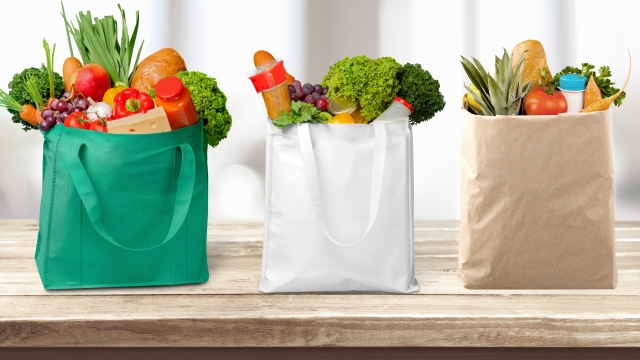
In the bustling aisles of supermarkets and local shops alike, plastic shopping bags have become synonymous with convenience. They are lightweight, durable, and readily available, providing an easy solution for carrying home groceries and various purchases. For many, these bags represent a quick and practical approach to shopping, reducing the hassle of carrying heavy items and allowing consumers to navigate their busy lives with ease. However, beneath this facade of convenience lies a growing concern that is impossible to ignore.
As we delve deeper into the implications of our reliance on plastic shopping bags, it becomes clear that their environmental consequences are profound. These bags, often used just once before being discarded, contribute significantly to pollution and harm wildlife. With millions of plastic bags ending up in landfills and oceans each year, the hidden costs of our convenience are starting to manifest in alarming ways. Balancing the immediate benefits of plastic bags with their long-term effects invites us to reconsider our habits and explore sustainable alternatives.
Environmental Impact
The widespread use of plastic shopping bags has led to significant environmental challenges. These bags are commonly made from polyethylene, which is derived from fossil fuels. The production process of plastic bags contributes to greenhouse gas emissions, exacerbating climate change. Additionally, the extraction and transportation of oil for plastic creation have their own environmental costs, further adding to the ecological footprint of these convenient items.
Once discarded, plastic shopping bags often end up in landfills, where they can take hundreds of years to decompose. During this time, they can leach harmful chemicals into the soil and waterways, posing risks to both terrestrial and aquatic ecosystems. Furthermore, due to their lightweight nature, these bags can easily become litter, blowing into natural spaces and contributing to pollution. Wildlife is particularly vulnerable, as plastic bags can be mistaken for food, leading to ingestion and, often, fatal consequences.
Efforts to address the environmental impacts of plastic shopping bags have led to initiatives promoting reuse and recycling. Many cities and countries are implementing bans or fees associated with single-use plastic bags to encourage consumers to seek alternatives. While these measures aim to reduce plastic waste, the challenge remains in changing consumer behavior and developing sustainable practices that mitigate the overall impact of plastic on the environment.
Economic Considerations
The widespread use of plastic shopping bags has brought significant economic implications for retailers and consumers alike. On one hand, these bags are inexpensive to produce and provide a convenient option for businesses to offer their customers. They can be purchased in bulk at a low cost, which helps keep overall expenses down for retailers. This affordability has made them a staple in the industry, as they are often included in the price of goods and add minimal financial burden on businesses.
Thank You Grocery Bags
However, the hidden costs associated with plastic shopping bags are beginning to surface. As awareness of environmental damage grows, many consumers are becoming resistant to the use of these bags, leading to a decline in sales for stores that rely heavily on them. Retailers are finding themselves faced with the need to invest in more sustainable alternatives or implement programs to encourage customers to bring their own bags. This shift, while necessary for long-term sustainability, can incur additional costs that may affect profit margins.
Further complicating the economic landscape is the increasing number of municipalities and countries implementing bans or fees on plastic bags. These regulations lead to a further shift in consumer behavior as individuals seek more eco-friendly solutions. For businesses, the challenge lies in navigating these changes while maintaining profitability. Retailers must carefully consider the transition costs and the potential impact on customer loyalty, as offering alternatives aligns with the values of a growing segment of environmentally conscious consumers.
Alternatives to Plastic Bags
One of the most popular alternatives to plastic shopping bags is reusable cloth bags. These bags are typically made from sturdy materials such as cotton, jute, or other eco-friendly fabrics, making them both durable and stylish. Reusable cloth bags can be used multiple times, significantly reducing the need for single-use plastic. Many retailers now offer these bags for sale, and consumers can also make their own, promoting creativity and personal expression.
Another viable option is biodegradable bags, which are designed to break down more quickly than conventional plastic when exposed to natural environmental conditions. Made from materials like cornstarch or other plant-based substances, biodegradable bags offer a more sustainable choice. However, it is important for consumers to understand that not all biodegradable bags decompose in landfills, as they require specific conditions to break down effectively.
Additionally, more innovative solutions are emerging, such as bags made from recycled materials or significantly thinner plastic that reduces overall plastic use. Some companies are exploring the use of mushrooms and algae to create sustainable bag alternatives. These cutting-edge options provide consumers with a variety of choices that align better with a commitment to the environment, aiming to minimize the ecological footprint associated with shopping.
